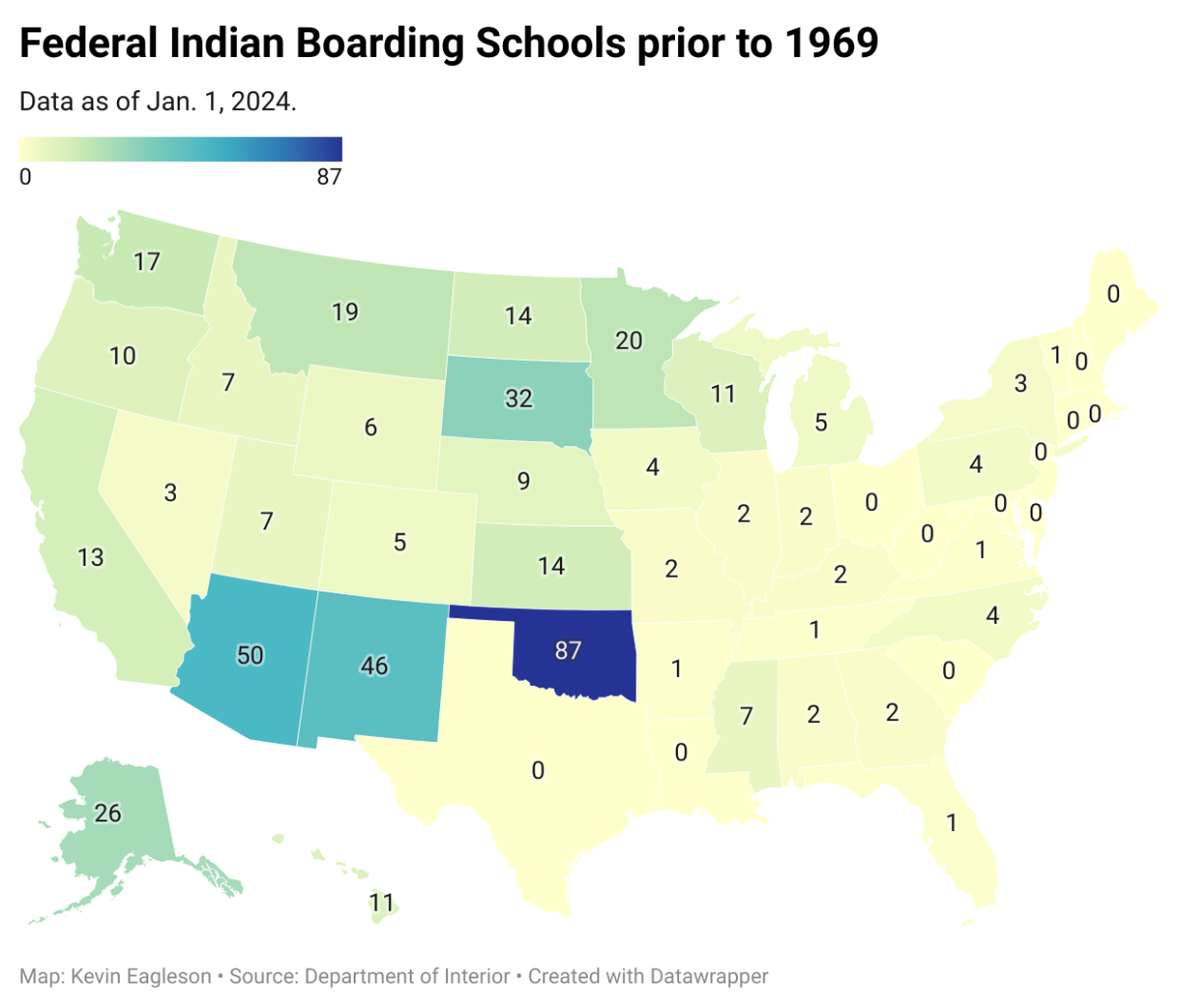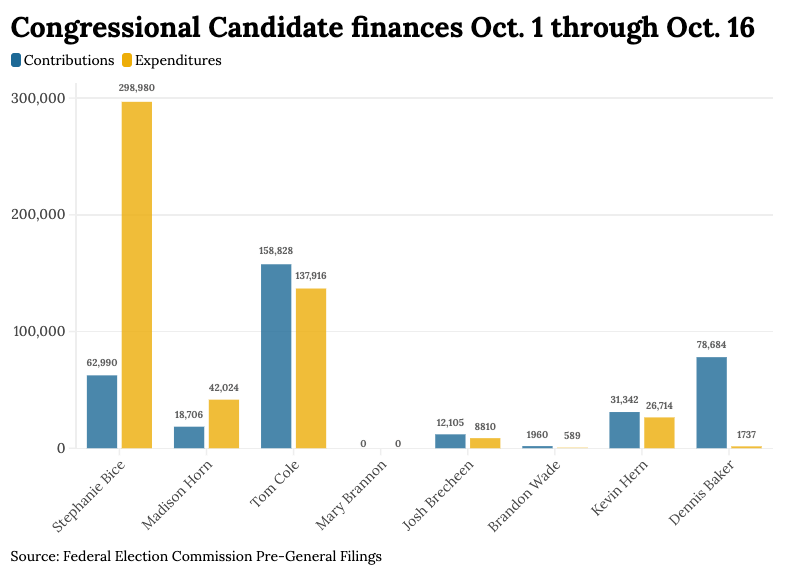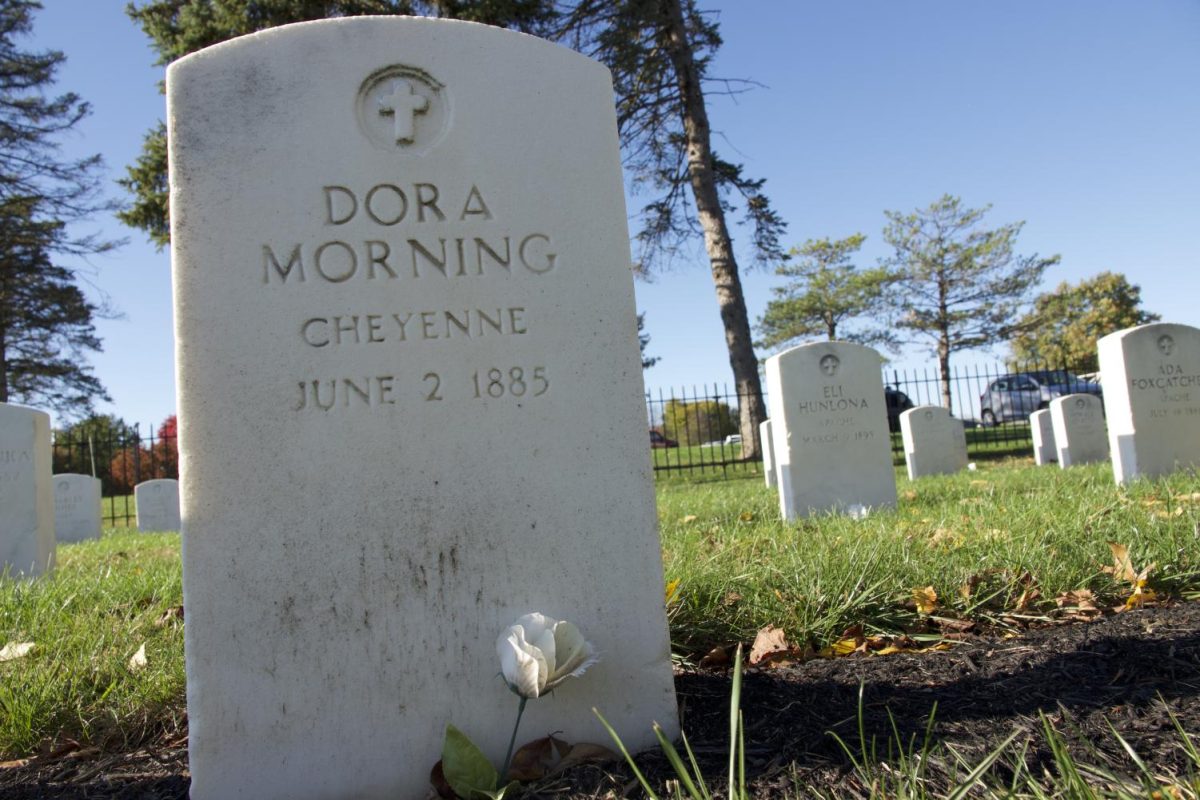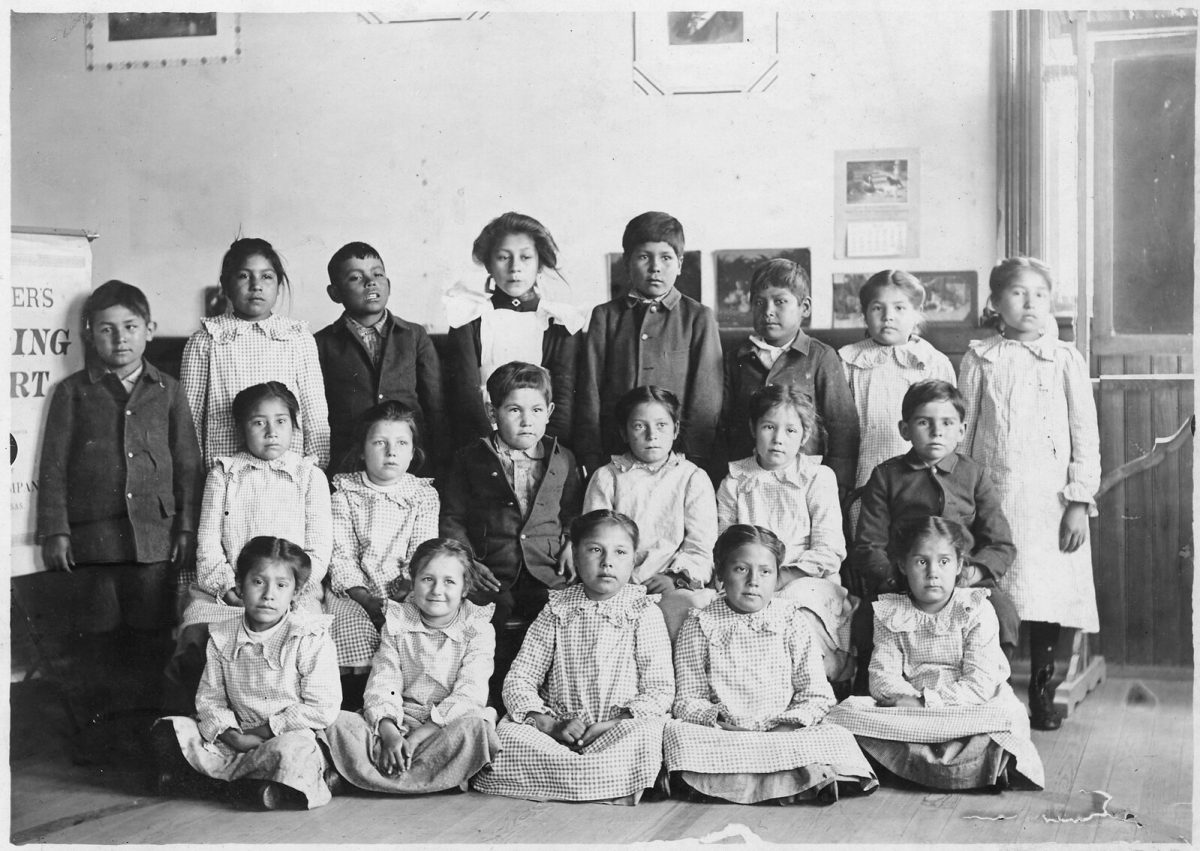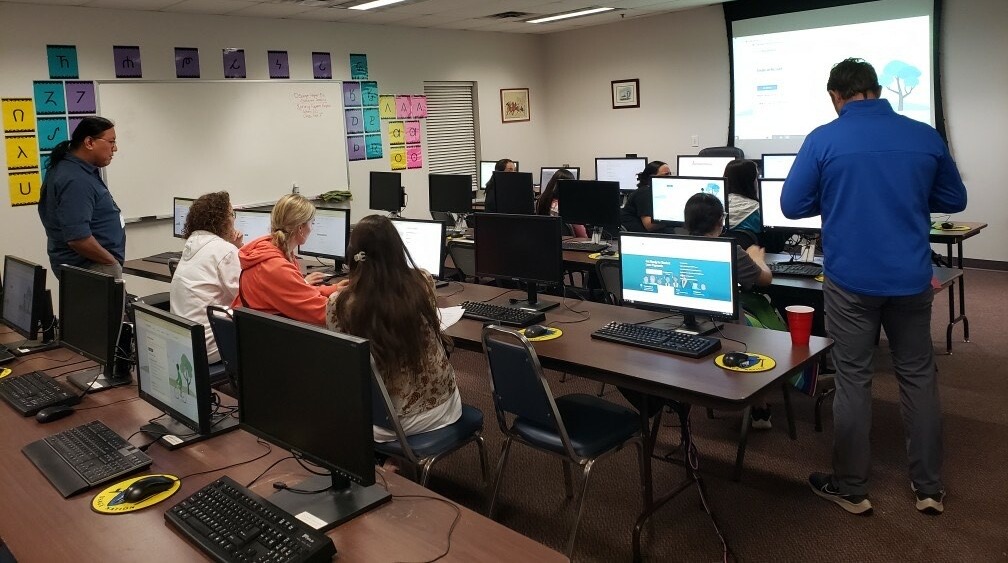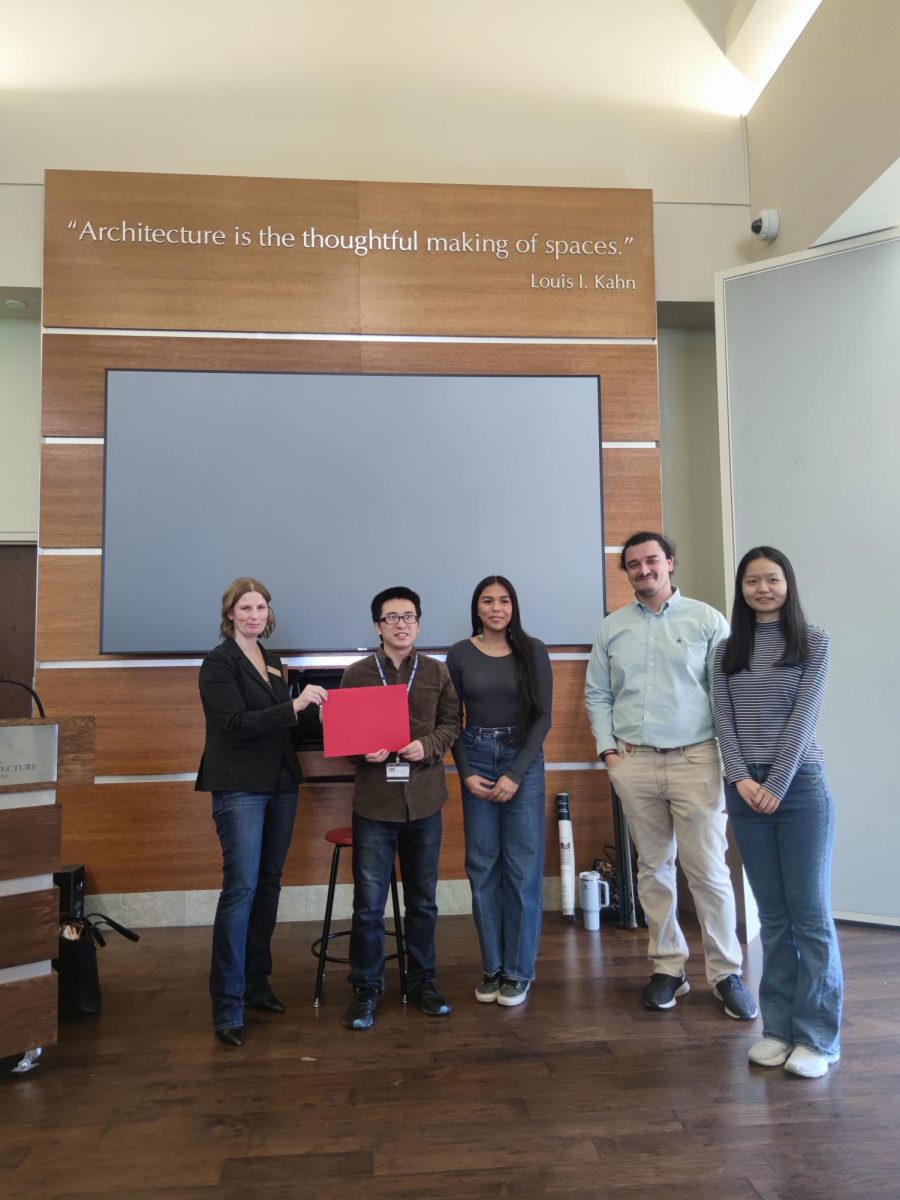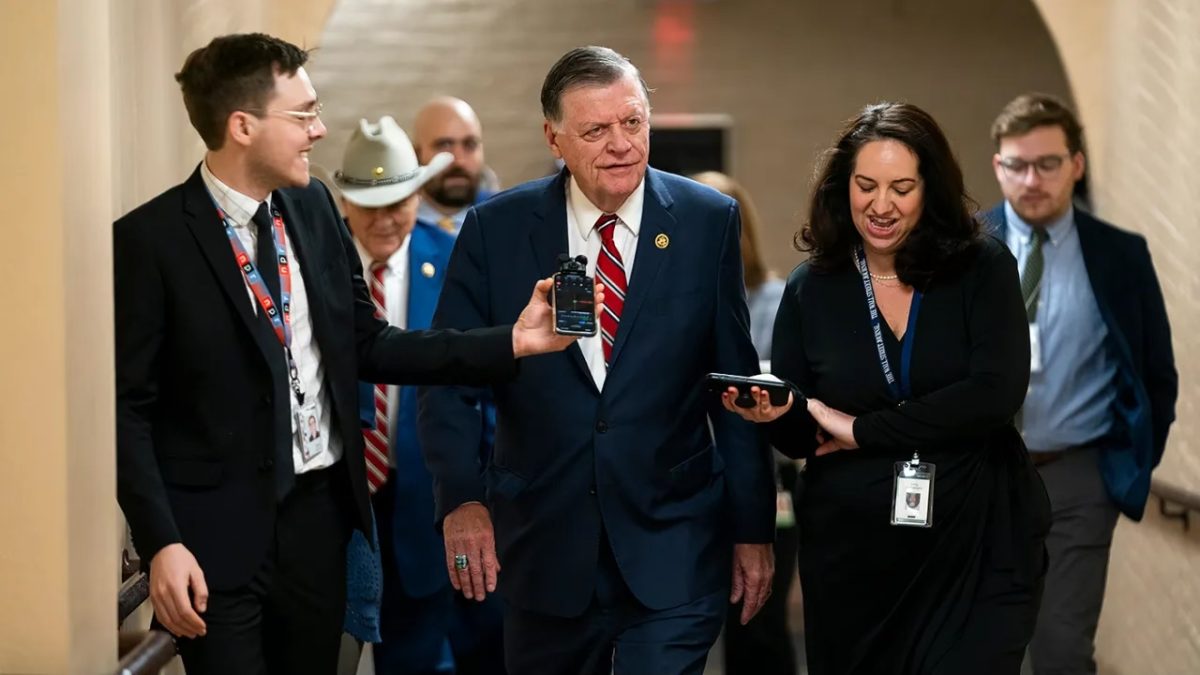Oklahoma tribal leaders say they are pleased with President Joe Biden’s apology for the forced removal over 100 years of Indigenous children from their families and tribes to Federal Indian Boarding Schools.
“I formally apologize, as President of the United States, for what we did. I formally apologize, and it’s long overdue,” Biden said on Oct. 25, at an event with the Gila River Indian Community in Arizona.
As of Jan. 1, 2024, the Department of the Interior has identified 451 Federal Indian Boarding Schools that operated prior to 1969, 87 of which were located in Oklahoma. The Department of the Interior has also found that at least 973 students died at Federal Indian Boarding Schools.
The total number of children forced into Indian Boarding Schools is unknown. However, by 1925, over 80% of Indigenous children, at least 60,000 children, were at an Indian Boarding School.
At Indian boarding schools, children were often subjected to physical, mental and sexual abuse. Indian boarding schools aimed to eliminate Indigenous culture. The effects of the abuse and forced assimilation impact Indigenous communities and boarding school survivors to this day.
“Our children were made to live in a world that erased their identities, their culture and their spoken language,” Cherokee Nation Principal Chief Chuck Hoskin Jr. said. “They often suffered harm, abuse, neglect and (were) forced to live in the shadows.”
Tribal leaders react to Biden’s apology
Hoskin Jr. said the President’s acknowledgment of the abuse is long overdue, but the President’s apology is a profound moment for Native people across the country.
“We know from experience that true healing goes beyond words — it requires action, resources and commitment,” Hoskin Jr. said.
“Cherokee Nation publicly acknowledged our own role in the painful history of Cherokee Freedmen and have worked to address positive changes, and so too can this country,” he said referring to the descendants of former Cherokee slaves who were freed in 1866 after the Civil War. In 2021, the Cherokee Nation Supreme Court ruled that descendants of Cherokee Freedmen have the right to tribal citizenship.
Choctaw Nation of Oklahoma Chief Gary Batton released a statement following Biden’s apology writing that the apology was a step in the right direction toward understanding and reconciliation.
“The system of oppressive and deadly boarding schools is a dark chapter in the history of the United States, and the scars live on in Native American people,” Batton wrote. “Acknowledging a painful past must be part of any true effort to atone and ensure all people are treated equally and with dignity.”
Chickasaw Nation Governor Bill Anoatubby wrote in a statement that he is pleased to hear Biden apologize for the generational damage caused by federal involvement in Indian boarding schools.
“These policies were designed to force First American people to abandon their language and culture by separating thousands of young children from their families and communities,” Anoatubby wrote. “President (Richard) Nixon promoted self-determination rather than termination because he recognized and respected the value of First American cultures, values, and traditions. This apology by the Biden-Harris administration signifies a commitment to elevate that level of recognition and respect to an even higher level.”
Osage Nation Principal Chief Geoffery Standing Bear said Biden’s apology is an important acknowledgment of the suffering committed against Native people.
“I want to address all those processing this information and let know them they are not alone,” Standing Bear wrote in a statement to Gaylord News. “Please reach out to your community for support and access the resources that are available to you. At Osage Nation, our counseling center is here to help you: (539) 212-2499.”
Members of Oklahoma’s Congressional Delegation reacts
U.S. Rep. Tom Cole (R-Moore) a member of the Chickasaw Nation and the first Native American chairman of the House Committee on Appropriations, said he is glad to see accountability being taken for the role federal policies had in the boarding school system.
“Indian boarding schools have had devastating impacts on Native communities. Yet, for so many years, the true stories about what happened to these Native Children have not been spoken about,” Cole said.
In February, Cole co-led H.R. 7227 with Rep. Sharice Davids (D-Kansas). The bill, known as the “Truth and Healing Commission on Indian Boarding School Policies Act of 2024” seeks to establish a commission to investigate, document and report on the history of Indian boarding schools, the policies surrounding them and the long-term impacts on Native communities.
In June the bill passed through markup by the House Education and Workforce Committee. The bill has not yet been voted on in the House.
Sen. Markwayne Mullin (R-Westville), a member of the Cherokee Nation and a member of the Senate Committee on Indian Affairs, said he was optimistic about the potential for a meaningful dialogue but disappointed with the timing of the apology.
“I am disappointed to watch the Biden-Harris administration seemingly treat this matter as a press opportunity — just days before a Presidential election — in a swing state,” Mullin said. “That said, I am optimistic that significant truth and healing can, and will, take place following a meaningful dialogue with all parties involved during this era of federal Indian policy.”
As part of the effort to promote healing, the federal government has begun to exhume and return the remains of Indigenous students who died at the boarding schools. In September, the body of Kate Ross, who died at Carlisle Indian Industrial School in Carlisle, Pennsylvania, was returned to the Wichita and Affiliated Tribes in Anadarko. Her remains were reinterred at Rock Springs Cemetery.
The exhumation and reinterment of individuals who died at Carlisle is currently ongoing.
Kevin Eagleson is reporting from Gaylord News’ Washington bureau this fall as part of an OU Daily scholarship.
Gaylord News is a reporting project of the University of Oklahoma Gaylord College of Journalism and Mass Communication. For more stories by Gaylord News go to GaylordNews.net

